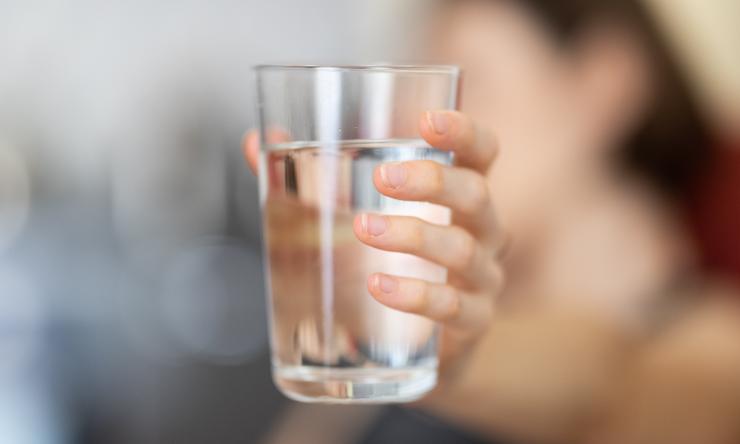Drink up to prevent dehydration this summer
Temperatures are rising, and it is important to make sure you are drinking enough water so you won’t be dehydrated. Dehydration occurs when your body doesn’t have enough fluids to function effectively. Dr. Sara Andrabi, an emergency room physician and assistant professor in the Henry J.N. Taub Department of Emergency Medicine at ÔÚĎßşÚÁĎĂĹ, explains the symptoms of dehydration and who is most at risk.
“Every organ in our body – heart, kidneys, muscles and skin – depends on proper hydration to work, as 60% of our body is water,” said Andrabi. “With higher temperatures, your body is losing more water through sweating in an attempt to cool itself. That water has to be replaced.”
Early symptoms of dehydration include dry mouth, headache, low energy, dizziness, lightheadedness and muscle cramps.
Worsening signs of dehydration include a fast heartbeat (tachycardia), confusion, irritability and feeling like you may faint. To prevent dehydration, Andrabi says to be proactive and not wait until you have symptoms.
“Drink water regularly, not just when you are thirsty. If you are sweating or exercising while outside, increase your fluids,” Andrabi said.
In extreme heat during the summer months, Andrabi suggests staying indoors during peak hours (10 a.m. to 4 p.m.), and if you must be outside, take frequent breaks, wear loose-fitting clothing and hydrate with water regularly. In addition to drinking water, you can hydrate by eating foods with high water content, like watermelon, cucumber, celery, zucchini and apples. Broths and yogurts help, too.
While it is recommended that you drink 8 to 10 glasses of water per day, this intake amount varies depending on a person’s age, sex, pregnancy status and level of activity.
“Those who are the most at risk of dehydration are those of extreme age (infants/young children and older adults), people with chronic diseases like diabetes or kidney disease, athletes and outdoor workers and those who have an illness with fever, vomiting or diarrhea,” Andrabi said.
Treating dehydration means increasing your fluids, and ideally, Andrabi says, drinking something with the right amount of salts and sugars to help your body absorb back the water it has lost while you rest in a cool, shaded area. You may need IV fluids if your dehydration worsens.



